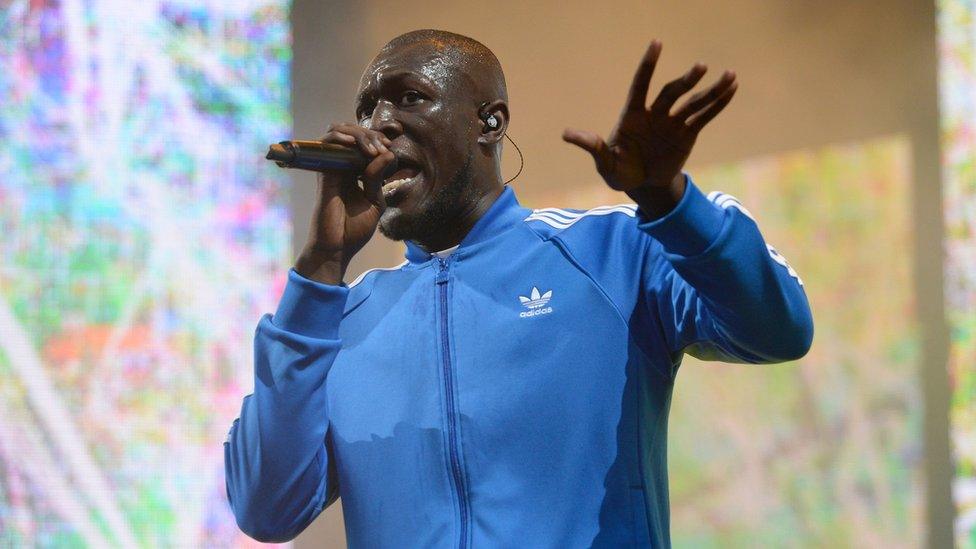Bestival shows up male-dominated festivals with female line-up
- Published
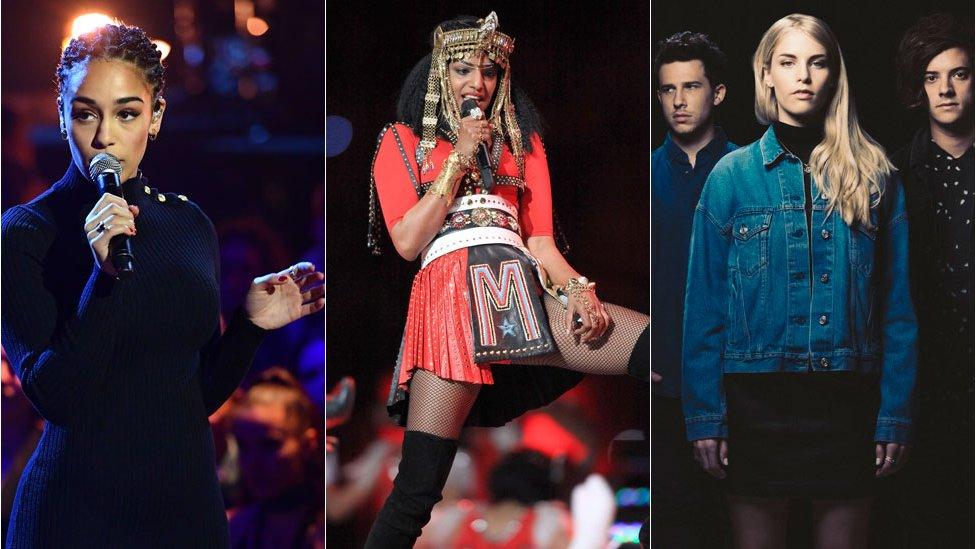
Jorja Smith, MIA and London Grammar all headline as part of this year's Bestival
Last month, the Wireless Festival found itself at the centre of a storm.
After it announced its 2018 line-up, fans noticed only three of the acts on the bill were women.
Lily Allen posted a doctored version of the event's poster, with all the male names erased. "The struggle is real," she noted. DJ Annie Mac responded, calling the situation "appalling".
Allow X content?
This article contains content provided by X. We ask for your permission before anything is loaded, as they may be using cookies and other technologies. You may want to read X’s cookie policy, external and privacy policy, external before accepting. To view this content choose ‘accept and continue’.

Now Bestival has proved a more balanced line-up is possible, with headliners including MIA and London Grammar.
Grace Jones, First Aid Kit and Chaka Khan also take prominent slots on the main stage; while rising R&B star Jorja Smith headlines the festival's Big Top.
Organiser Rob Da Bank told the BBC that 60 per cent of Bestival's audience is female, "which is kind of unusual... but it's great we can reflect that in the line-up."
"We counted it up two weeks ago and almost a quarter of our acts are female - which I know is nowhere near the 50 [per cent] it should be but it's more than a lot of other festivals."
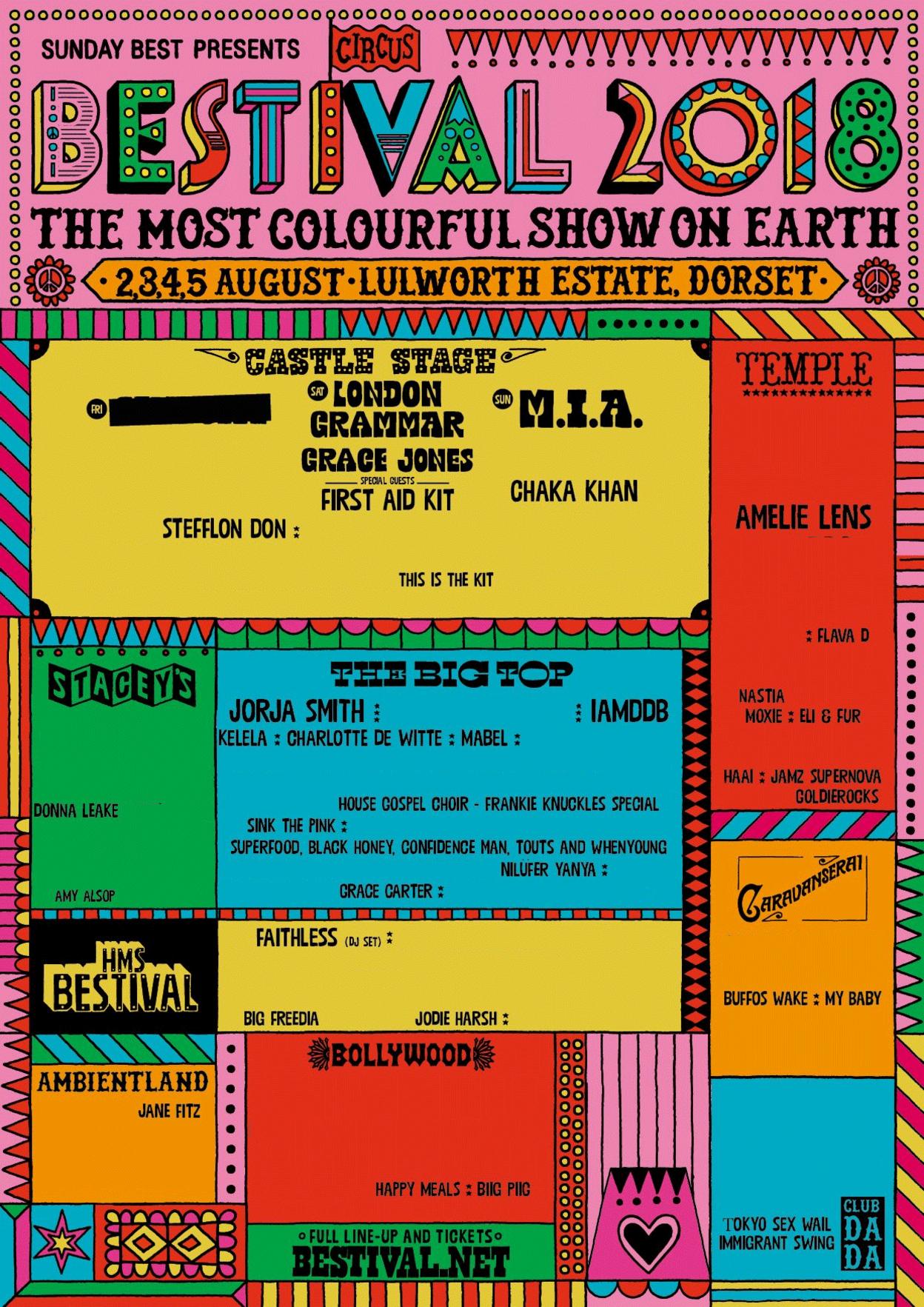
The Bestival line-up isn't quite as empty as other festivals when male artists are removed

The lack of female artists on festival bills has been a cause of concern for the music industry since 2015, when a blogger called Josh Dalton created an embarrassing mock-up of the Reading & Leeds Festival line-up poster, removing all the male acts.
Just nine acts remained. Only one of them - Marmozets - was on the main stage.
Since then, Glastonbury has put Adele and Florence + The Machine in their main slot, while Carole King played the BST Festival in Hyde Park and Pink headlined last year's V Festival.
But the representation of women remains a problem. Last year, music website Pitchfork tallied up all the festival acts playing in the UK and found 74% were male, 14% female and 12% mixed gender.
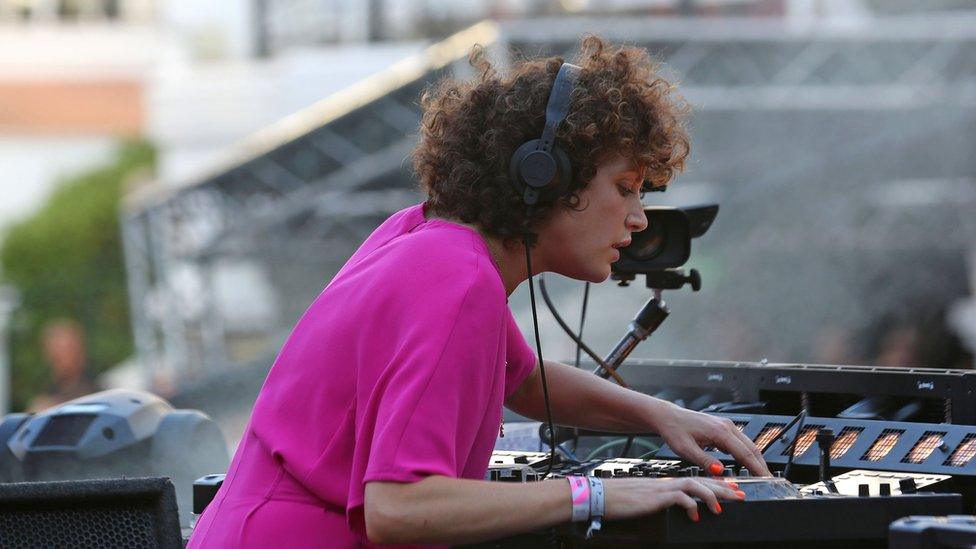
Annie Mac has spoken of the difficulty in booking female artists
Wireless came in for criticism this year because, as an urban music event, it had a wider pool of female talent to choose from than, say, a rock festival.
Writing in Grazia magazine on Tuesday, Radio 1's Annie Mac said she was "incredulous" that only three female acts were on the bill.
"Having curated my own live shows for the past decade, I know it can be difficult to achieve an equal gender balance," she said.
"But it's really quite something for not even one of the Wireless bookers to pipe up and say 'Lads, maybe we should get a few more female names on there'."
It is understood there will be a second announcement of Wireless performers in the near future, which will include more female performers.
Meanwhile, BBC Sound of 2017 winner Ray BLK took to Twitter to explain she'd been asked to play Wireless but turned down the opportunity.
The BBC understand other female artists were approached to play the event but were unable to take part this year.
Allow X content?
This article contains content provided by X. We ask for your permission before anything is loaded, as they may be using cookies and other technologies. You may want to read X’s cookie policy, external and privacy policy, external before accepting. To view this content choose ‘accept and continue’.
In recognition of the debate, several festivals have tried to address the current imbalance.
Manchester's Parklife festival has given prominent slots to Lorde, Jessie Ware and Chvrches; while the BBC's Biggest Weekend will feature performances from Taylor Swift, Wolf Alice and Paloma Faith, amongst others.
US festivals are also taking note. Coachella, which will be headlined by Beyonce this April, increased the number of female artists on its bill from nearly 40 to just under 60.
Yet the majority of these artists are in mid-tier positions. Female headliners are few and far between - despite artists like Ariana Grande, Katy Perry, Rihanna and Lana Del Rey commanding massive fan bases.
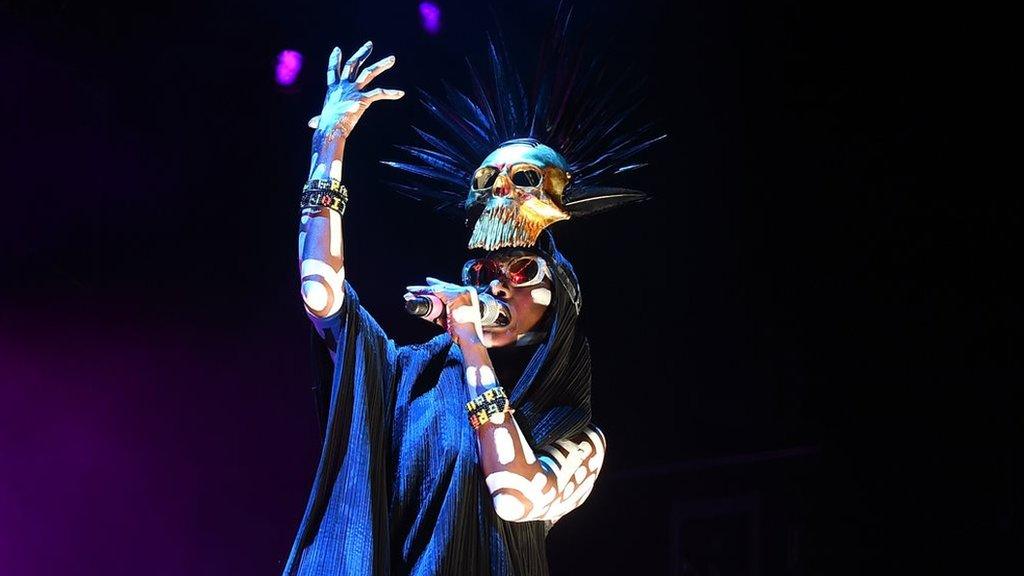
Grace Jones is one of the many female artists on Bestival's 2018 line-up
That's partly because festivals tend to avoid pop artists, whose audiences are younger and less affluent. But with Little Mix and Britney Spears playing medium-sized stadium dates this summer, maybe that thinking should change.
Rob Da Bank said festival bookers needed to take more risks.
"I love Catfish and the Bottlemen and I love the Libertines but there's only so many festivals you can see with those bands on the line-up," he told the BBC.
He admitted he'd been "lucky" this year, and that "London Grammar fell into my lap" but that festivals in general "need to be more conscious".
"I've just finished four months of intense, stressful, sleepless nights trying to pull this all together. And sometimes you get to the end of it and realise, 'Oh my God, there's no women on the bill'.
"So I think you've got to be more conscious of it and make more of an effort."

Follow us on Facebook, external, on Twitter @BBCNewsEnts, external, or on Instagram at bbcnewsents, external. If you have a story suggestion email entertainment.news@bbc.co.uk, external.

- Published24 January 2018
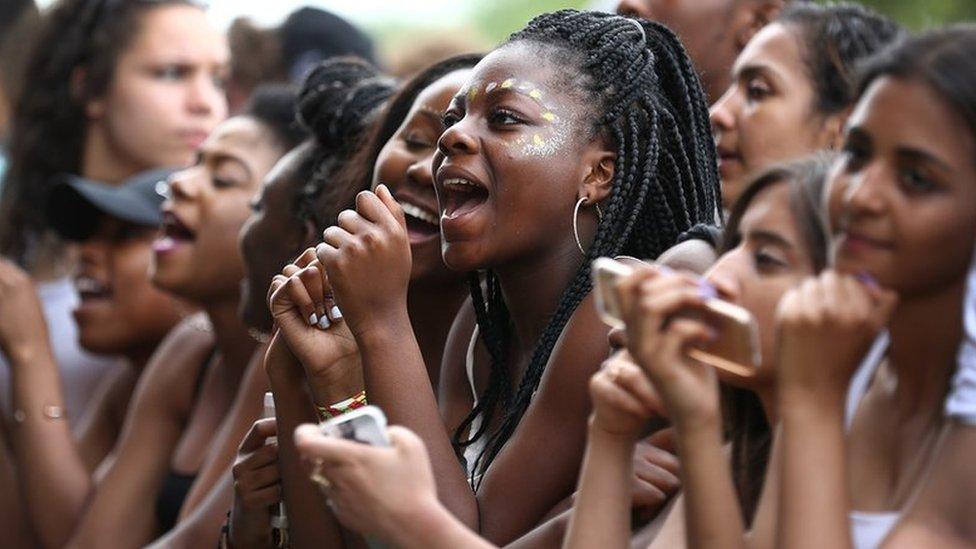
- Published7 February 2018
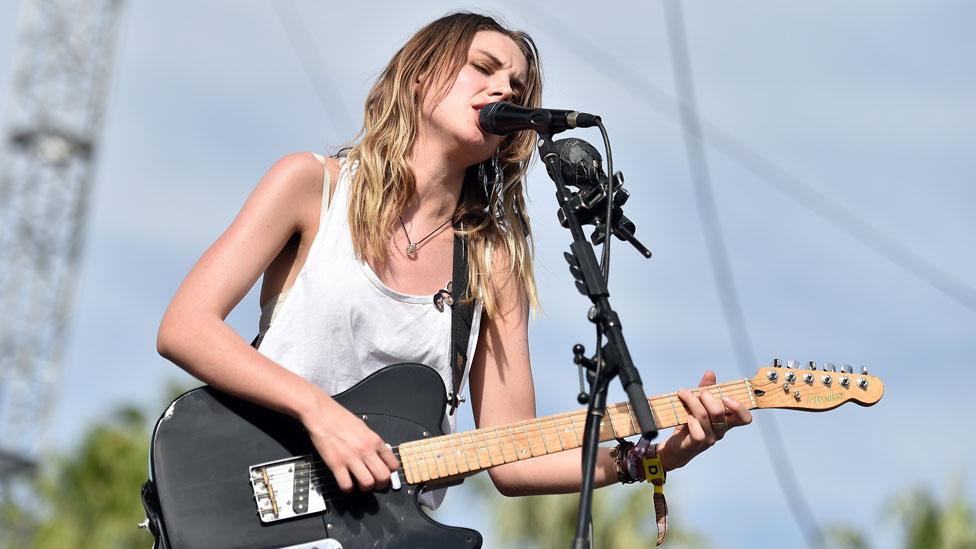
- Published22 January 2018
